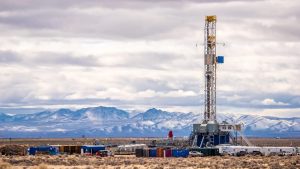There were disappointments, cliff-hanging moments and, thankfully, surprising achievements! As we end the first month of 2024, I want to reflect on the results of the recent COP* 28 conference from the end of 2023. If you weren’t following the proceedings closely and want to know what came of it all, this (relatively!) brief post is for you.
Let’s begin with the achievements…
FOSSIL FUELS
The single-most significant win at COP28 was the inclusion of these critical words in the final agreement: “transitioning away from fossil fuels”. Finally! Shockingly, this is the first time that those key words, “fossil fuels”, have made it into any COP agreement. It has taken 28 years since the first COP in 1995 for countries to agree to include a clear reference to the main cause of global warming.
The key section commits to ”a transitioning away from fossil fuels in our energy systems, beginning in this decade, in a just, orderly and equitable manner…so as to achieve net zero by 2050 in keeping with the science.” Previous COP treaties have acknowledged that climate change is caused by human activities, but have shied away from referring to humanity’s reliance on fossil fuels as the main cause. And yes, agriculture, habitat destruction, and many other causes also contribute to climate change, but fossil fuel emissions are the primary contributor.
ASSISTANCE FOR VULNERABLE NATIONS
Loss & Damage: Also for the first time, COP28 produced an agreement to support those nations most vulnerable to the impacts of climate change. To that end, wealthier nations have committed to a preliminary $700 million in aid, to be managed initially by the World Bank. Although a fraction of what will be needed, these commitments were a meaningful start to helping those nations who have had the least impact on climate change, but who will suffer the most.
Wealthier nations will also assist with national response plans: “addressing insufficient climate information and data, and promoting equitable, safe and dignified mobility in the form of displacement, relocation, and migration, in cases of temporary and permanent losses and damage.”
Mitigation & Adaptation: COP28 expanded on agreements made at COP27 to assist vulnerable nations as they adapt to and mitigate the impacts of climate change. Commitments were made to double financial support over previous promises and to assist in planning for adaptation. Post-2025 finance target details are to be presented at COP29.
ENERGY
Nations agreed to a tripling of renewable energy capacity and a doubling of energy efficiency, both by 2030. With the Global Renewables and Energy Efficiency Pledge, the signatory nations agreed “to work together to triple the world’s installed renewable energy generation capacity to at least 11,000 GW by 2030, taking into consideration different starting points and national circumstances”.
On the energy efficiency front, the party nations pledged “to work together in order to collectively double the global average annual rate of energy efficiency improvements from around 2% to over 4% every year until 2030.” In addition, considering energy efficiency as “the first fuel at the core of policymaking” emphasizes the importance of reducing energy consumption through increased efficiency, even as sustainable energy sources are increased.
METHANE
At COP28, $1 billion was promised by countries, companies, and philanthropies in support of the Global Methane Pledge. This pledge, introduced at COP26, has now been signed by 155 countries, all agreeing in principle to reduce methane emissions by 30% of 2020 levels. Other methane-related steps at COP28 included confirming The Climate and Clean Air Coalition as secretariat for the pledged countries, a geographic broadening of leadership, and plans to increase methane reduction funding by billions more. The U.S. shared its own recent stricter methane regulations, and China is including methane reduction in its next climate plan.
Given the outsized impact that methane emissions have on global warming, these developments are critical to reducing future temperature gains. For more information on methane’s impact on climate change, see my earlier post at A Climate Citizen, Why Electrify?
FOOD SYSTEMS
The role of food systems in the climate crisis was introduced for the first time at a COP conference at COP28. The COP28 Stocktake review of climate conditions and causes included an assessment of the impact of food systems. An entire day of meetings and discussion was devoted to food production, transport, use and waste. The UN’s Food and Agriculture Organization (FAO), created a food systems road map, and nations are expected to return with specific progress and goals by COP29 and COP30. There were complaints of too much emphasis on adaptation, and not enough on emissions and mitigation, but overall the inclusion of food systems was hailed as a major breakthrough.
NATURE-BASED SOLUTIONS
Another new priority at COP28 was to accelerate “the use of eco-system based adaptation and nature-based solutions”. Several landmark commitments on forests, mangroves, landscape, restoration, nature finance, and the ocean, were announced, along with initial funding of $186 million. Supporting and expanding existing eco-systems has been shown to be very effective in mitigating the effects of climate change, while maintaining natural habitats for their own sake. The agreements from COP28’s Nature, Land Use and Ocean Day are widely considered as a critical step in addressing climate change, while building momentum to protect and restore nature.
CONCERNS
While I have emphasized COP28’s breakthrough achievements, many concerns remained after the closing day. Here are a few…
“Phase out” vs “transitioning away”: There was disappointment that the final language on fossil fuels was not stronger. Many called for a promise to “phase out” fossil fuels, rather than the less urgent “transitioning away from” fossil fuels. Vulnerable island nations, among others, were not included in the dealmaking that led to the final wording, and spoke against it. In the end, language that was acceptable, if not desirable, to all parties was adopted by consensus.
Unabated Coal and Natural Gas: These two major contributors to global warming were not treated as seriously as they need to be to achieve climate goals. A vaguely worded statement calling for “efforts toward the phase-down of unabated coal power” relies heavily on the future potential of carbon capture in maintaining coal power production. (Unabated coal refers to coal emissions not offset by carbon capture.) And natural gas is referenced as a “transitional fuel”, even though its main component (methane) is a big driver of global warming.
Carbon Markets: Negotiators did not reach agreement on improving oversight and accountability in carbon markets. Given their potential for incentivizing carbon emission reductions, the lack of progress on carbon markets was disappointing. The credibility of many carbon credit projects has been cause for concern, and there is certainly no point in giving carbon credits for projects that do not in fact achieve their goals. Carbon market discussions will return to the table at COP29.
Oil Executive as leader of COP28: The fact that COP28 was held in an oil-rich nation, the United Arab Emirates, and led by Dr. Sultan Ahmed Al Jaber seemed beyond ironic to many. Al Jaber is the lead climate diplomat for the UAE, but he is also the president of Abu Dhabi National Oil Company and a leading politician in the UAE. Such a combination of roles would be inconceivable in just about any other nation. Others have argued that engaging oil-rich nations is necessary for global solutions, and it may be that Al Jaber’s leadership encouraged other such nations to be serious about addressing the problem. Even if the commitments taken were not scaled to the level most believe is necessary, they were significant improvements over past COP agreements.
WRAPPING UP
Since the first COP in 1995, this annual meeting of nations, this Conference of the Parties, has addressed the most critical issue facing humanity, the climate crisis of global warming and what it means for us and for life as we know it on our planet. It is true that nations have not consistently adhered to the agreements over the years; our own country, the United States, included.
And yet I would argue that some portion of global progress on the climate is a result of COP agreements and their constant revision by successive gatherings. The process of discussion, argument, and consensus has led to a certain degree of peer pressure that has encouraged global progress on the climate crisis, and encourages citizens, scientists, and businesses to move forward on solutions, even when governments lag behind.
The consensus from COP28 is not all that we need, but it’s better than what we’ve had. I am hopeful that next year’s meeting will push the bar on climate action even higher on many fronts.
Note: All phrases in quotation marks were excerpted from the final COP28 Consensus Agreement. A link to the COP28 website is provided below, along with links to the Sources I relied on to follow the event and its outcomes.
*Conference of the Parties (COP) refers to the nations who are party to the international treaty called the United Nations Framework Convention on Climate Change (UNFCCC). This treaty is reviewed and revised annually, and approved by the consensus of all parties (participating nations).
SOURCES
General:
Carbon Brief – COP28: Key Outcome Agree at the UN Climate Talks in Dubai
CNN – Takeaways from COP28: What does the climate deal say?
Forbes – Your Quick Guide to the Outcomes of COP 28
New York Times – Four Takeaways From the COP28 Climate Summit
Fossil Fuels:
Bloomberg News – COP28 Nations Reach First-Ever Deal to Move Away From Fossil Fuels
New York Times – In a First, Nations at Climate Summit Agreed to Move Away from Fossil Fuels
Reuters – Nations Strike Deal at COP28 to Transition Away From Fossil Fuels
Methane:
Vox – Pledges to Slash Methane Pollution at COP28 Are Leaving Out One Big Thing
Renewables & Energy Efficiency:
COP28 UAE – Global Renewables and Energy Efficiency Pledge
Food Systems:
The Guardian – “Food is Finally on the Table”: COP28 Addressed Agriculture in a Real Way
World Resources Institute – Six Major Food Breakthroughs at COP28 – and What Comes Next
Nature-Based Solutions:
COP28 UAE – United for Nature: COP28 Mobilizes Action to Protect and Restore Forests, Land and Ocean
COP28 UAE – Joint Statement on Climate, Nature and People
UN Environment Programme – Navigating the Promise of Nature-Based Solutions at COP28 and Beyond



4 Responses
Good article, really gives an understandable breakdown of the conference.
Thanks! Glad it was helpful:)
What an excellent summary! Thank you for your thoughtful comments.
Thanks for reading it and sharing your thoughts!